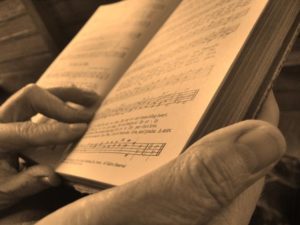You therefore must endure hardship as a good soldier of Jesus Christ.
(2 Timothy 2:3, NKJV)
Gus Hoehn and Erwin Crawford, my brother, were roommates and classmates in Loma Linda University School of Medicine, class of 1945. They continued to be close friends, although they saw each other only a few times during the next thirty years. This is their story.
After his internship, Gus and his family went to Africa as medical missionaries. Gus developed polio in 1948 and was flown back to Los Angeles, California. He spent several months in a so-called “iron lung.” He chose to specialize in the treatment of skin diseases, as he was confined to a wheelchair for the rest of his life.
Erwin took four years of postgraduate study in the field of obstetrics and gynecology. He spent six month training under the famous Dr. George Papanicalou, the developer of the now familiar “Pap smear.” Within a few years, Erwin became chief of the obstetrics and gynecology sections of two large Toronto, Canada, hospitals.
In addition to their love of medicine, Erwin and Gus shared a strong love for God and spiritual things. For part of his “giving back,” Gus collected samples of medicine from his medical friends and sent them to his former hospital in Africa. In time, Erwin gave up his clinical practice and became medical secretary of Seventh-day Adventist Church, a position that connected him to a large network of hospitals and clinics throughout the world than any other Protestant denomination.
Erwin felt that God had called him to integrate the spiritual and medical activities of the Seventh-day Adventist Church. When he developed cancer of the colon in 1973, he expected a complete recovery so he could continue his work. When the cancer recurred in 1976, he wondered if God had let him down at this important stage in his career. He tolerated the nausea, vomiting and diarrhea associated with the chemotherapy. But he could not accept the thought that his vital work might be cut short by cancer.

Dermatologists take care of skin diseases but not colon cancer. However, on one day in May 1976, when Gus visited Erwin in the hospital, he gave Erwin a treatment that changed his life. By this time, Erwin was thin, weak, and depressed. His liver was full of cancer, and he was slightly jaundiced. He intimated to Gus that God seemed to be letting him down.
Gus said, “Well, you know, Erwin, we sing that old hymn ‘Onward Christian Soldiers.’ If you’re in the front line of God’s army, you’re most likely to get hit.”
The idea appealed to Erwin. He looked at Gus sitting in his wheelchair and said, “Well, Gus, I guess you would know.”
Erwin lived less than a week. However, his attitude was completely changed. He was a man with a purpose, a soldier who had been wounded in the front line. Gus lived twenty more years. When his post-polio syndrome made it more difficult for him to breathe, he refused to use a ventilator. Gus died peacefully, knowing that he, too, had served God on the front line. — Raymond B. Crawford, LLUSM class of 1949
